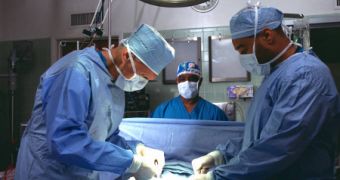Some women would do anything for beauty, even the most repulsive things. When it comes to health though – nay, life or death –, it shouldn't even be a matter of choice: a new study shows that fecal transplantation saves lives.
It's one of the taboo treatments that has the potential to fight a very nasty infection better than any other treatment.
A recent study published in Gastroenterology, the official journal of the American Gastroenterological Association, reveals that this transplant is actually the only one that can efficiently fight a Clostridium difficile infection (CDI).
The recurrent infection appears after treatment with antibiotics, which completely eliminates the gut flora that could fight it.
This also explains why it's most common in hospitals.
CDI leads to diarrhea and pseudomembranous colitis, a severe inflammation of the colon. In some cases, it can even be life-threatening.
Transplanting feces from a donor helps the gut flora fight the infection.
The study included a group of 70 patients from 5 hospitals. All had recurrent CDI and all had received fecal transplantation through colonoscopy.
An impressive 89 percent of them showed improvement, which Science Daily points out, was an amazing feat considering that the patients had not responded to any other treatment.
Neither had any negative response to the transplant, one year after it was performed. CDI did not appear again either.
“Our results suggest that fecal transplantation is clearly better than any other treatment for recurrent Clostridium difficile infection,” Eero Mattila, MD, of Helsinki University Central Hospital, Finland, and lead author of the study, says.
The procedure is not easy to perform and it's not entirely risk-free but, at the end of the day, its advantages outweigh the cons.
“Although fecal transplantation is not simple to perform and it has potential risks, it is an effective option,” Dr. Mattila adds.

 14 DAY TRIAL //
14 DAY TRIAL //